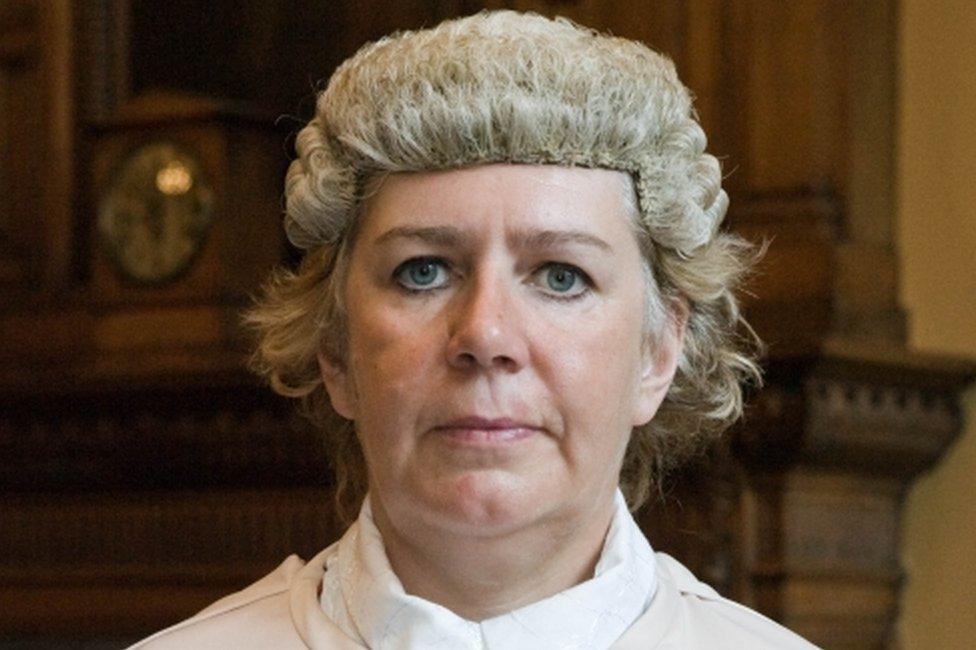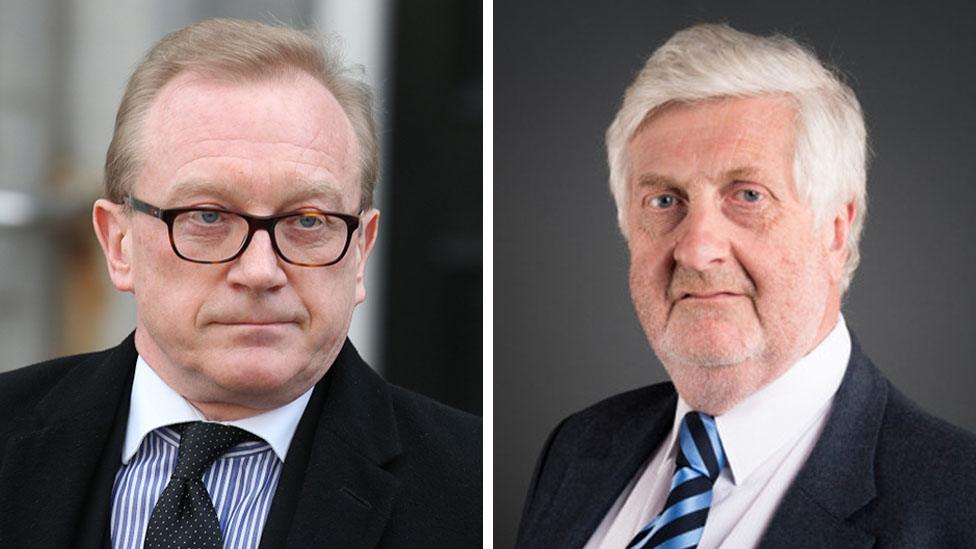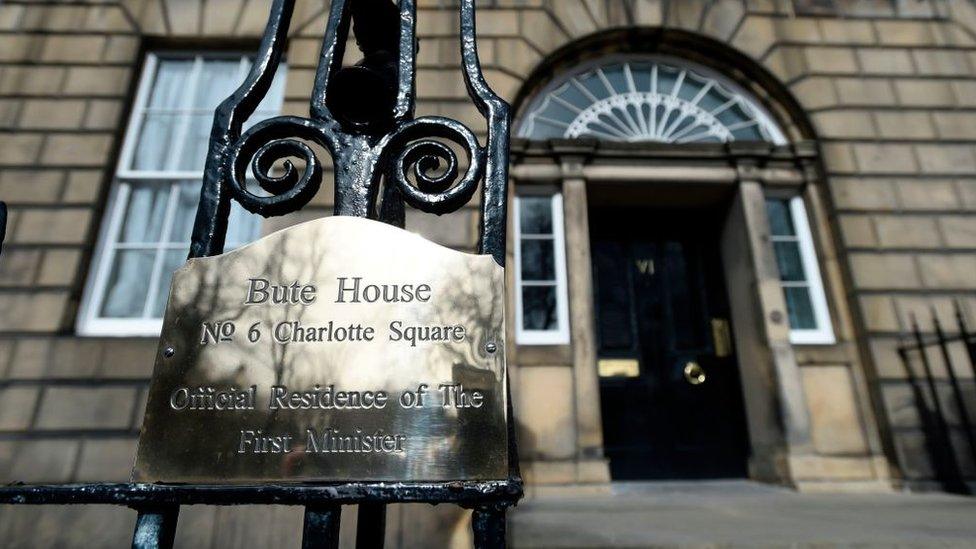What to expect during the Alex Salmond trial
- Published
Alex Salmond trial: What to expect during the case
Alex Salmond, the former first minister of Scotland, is standing trial on a string of sexual offences charges - all of which he denies. Here is a guide to what to expect during the trial.
What is Mr Salmond accused of?
The former SNP leader is alleged to have carried out a series of sexual assaults against women while he was serving as Scotland's first minister.
One of the charges against him was dropped at the end of the prosecution case on Monday. As a result, he now faces 13 charges which include one of attempted rape, one of sexual assault with intent to rape, nine sexual assaults and two indecent assaults.
The offences are alleged to have happened at various locations in Scotland between June 2008 and November 2014, including at the first minister's official Bute House residence in Edinburgh, a nightclub and a restaurant.
Mr Salmond has pled not guilty to all of the charges, and has vowed to defend himself vigorously during the trial.
What will happen during the trial?

Lady Dorrian was the first woman to be appointed as Scotland's Lord Justice Clerk, a role that dates back to the 14th Century
The trial is being held at the High Court in Edinburgh before Lady Dorrian, who is the Lord Justice Clerk - Scotland's second most senior judge.
A jury of 15 members of the public was selected before the trial began. They will listen to the evidence and decide if the case against Mr Salmond - who is known as the accused - has been proven "beyond reasonable doubt".
Unlike in some countries, there is no vetting process for potential jurors in Scots law so they cannot be rejected because of their political views, for example. There is also no need for the jury to be balanced between men and women.
There are no opening statements from lawyers and the trial began with Crown prosecutors calling witnesses, including the women who Mr Salmond is alleged to have sexually assaulted. They are known as the complainers.
The witnesses are questioned by prosecutor Alex Prentice QC and Mr Salmond's lawyers - Gordon Jackson QC, a former Scottish Labour MSP, and Shelagh McCall QC.

The prosecution case will be led by Alex Prentice (left), with Gordon Jackson leading Mr Salmond's defence team
The accused is not obliged to offer any evidence in their own defence. This is because it is for prosecutors to prove that the accused is guilty rather than for the accused to prove they are innocent.
Mr Salmond and his legal team did decide to call witnesses, and the former first minister gave evidence on Tuesday.
What verdicts can the jury reach?
Once the trial has finished, the jury will retire before reaching one of three possible verdicts: guilty, not guilty or not proven.
This decision does not need to be unanimous, with only eight of the 15 jurors needing to be in agreement.
The not proven verdict is an unusual and highly controversial feature of the Scottish legal system which in practice is exactly the same as a verdict of not guilty. The accused is acquitted and is innocent in the eyes of the law.
If Mr Salmond is found guilty of any of the charges against him, it will be for the judge to decide what sentence should be imposed.

Several of the charges are alleged to have happened at the first minister's official Bute House residence in Edinburgh
Why are the alleged victims not being named?
The media - including online blogs and social media - are not allowed to reveal the name or any other information that could identify alleged victims of sexual offences, unless that person waives their right to anonymity.
This remains the case even if the accused is ultimately cleared.
As with all criminal cases, the media are also restricted by contempt of court laws and anyone who publishes or broadcasts anything that could potentially prejudice the trial - for example speculation about the guilt or innocence of the accused - can be prosecuted and imprisoned.
Again, these contempt laws also apply to blogs and social media platforms such as Facebook and Twitter.
Can the public attend the trial?
Yes, but as with all court cases it will be on a first come, first served basis. The courtroom holds 90 people but the majority of these spaces are taken up by the media. There may be room for about 30 members of the public but the exact number of spaces could fluctuate from day to day.
Members of the public are told to leave the courtroom before the complainers give evidence in sexual offences cases.
However, reporters are generally allowed to stay in court while the evidence is being heard.